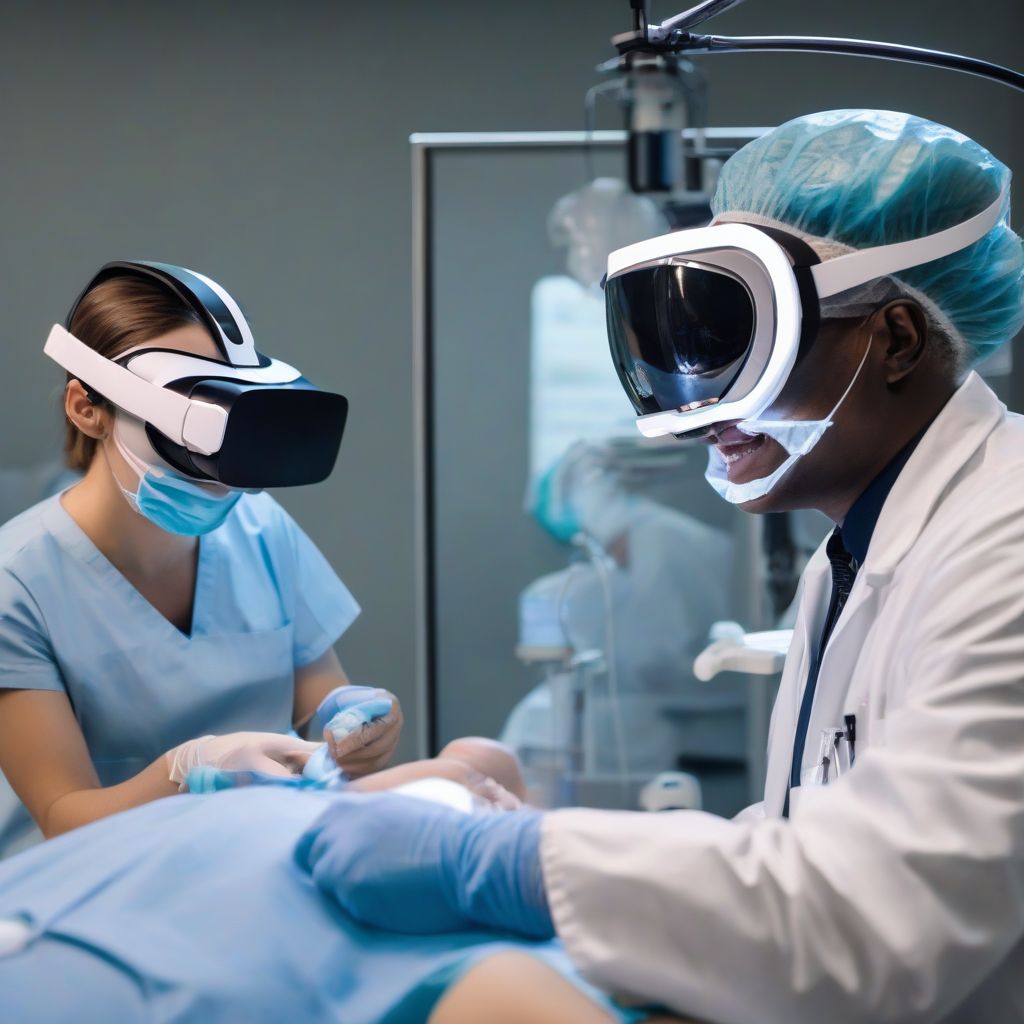Imagine stepping into an operating room, not as a patient or observer, but as a surgeon. You can see every detail of the human body in 3D, manipulate instruments with incredible precision, and practice complex procedures without any risk. This is the transformative potential of virtual reality (VR) in healthcare, a future that’s closer than we might think.
Beyond Imagination: How VR is Reshaping Healthcare
For years, VR has been associated with gaming and entertainment, but its applications in healthcare are rapidly expanding, revolutionizing patient care, medical training, and even mental health treatment.
VR in Medical Training: The Making of a Fearless Surgeon
One of the most promising areas of VR in healthcare is medical training. Imagine medical students honing their surgical skills in a risk-free virtual environment where they can repeat procedures, explore anatomy in 3D, and receive real-time feedback – all before stepping foot in an actual operating room. VR simulations offer a safe and controlled space for trainees to gain experience, build confidence, and master complex techniques.
Revolutionizing Patient Care: From Pain Management to Physical Therapy
The impact of VR extends beyond the classroom and into the realm of patient care. Imagine a world where burn victims can manage their pain through immersive VR experiences that transport them to serene landscapes, minimizing their reliance on medication. This is already a reality, with VR proving to be a powerful tool for pain management, particularly for chronic conditions.
But that’s not all. VR is also revolutionizing physical therapy. Stroke patients, for example, can use VR to retrain their motor skills through engaging games and exercises that simulate real-life activities. This immersive approach not only makes therapy more enjoyable but also accelerates the rehabilitation process.
A New Frontier in Mental Health: Tackling Phobias and Anxiety
VR is not just about physical well-being; it’s also transforming the way we approach mental health. Imagine someone struggling with social anxiety being able to practice their social skills in a safe, controlled virtual environment. VR therapy allows patients to confront their fears and anxieties head-on, with therapists guiding them through personalized scenarios. This innovative approach is proving to be particularly effective in treating phobias, PTSD, and even addiction.
 VR in Medical Training
VR in Medical Training
The Future Unfolds: Challenges and Opportunities in VR Healthcare
While the future of VR in healthcare looks promising, some challenges remain.
- Cost: High implementation costs can be a barrier for smaller healthcare providers.
- Data Privacy: Ensuring the security and privacy of patient data in virtual environments is crucial.
- Accessibility: Making VR technology accessible to all demographics and socioeconomic backgrounds is essential.
Despite these hurdles, the potential benefits of VR in healthcare are immense.
Embracing the Future: A New Era of Medical Innovation
The integration of VR in healthcare marks a paradigm shift in the medical landscape. As technology continues to evolve and become more accessible, we can expect to see even more innovative applications emerge, further blurring the lines between the virtual and real worlds in healthcare.
From enhancing medical education to revolutionizing patient care and transforming mental health treatment, VR is poised to reshape the future of healthcare. The journey has just begun, and the possibilities are limitless.
What are your thoughts on the role of VR in the future of healthcare? Share your insights in the comments below!
[amazon bestseller=”VR Headsets for Medical Training”]
